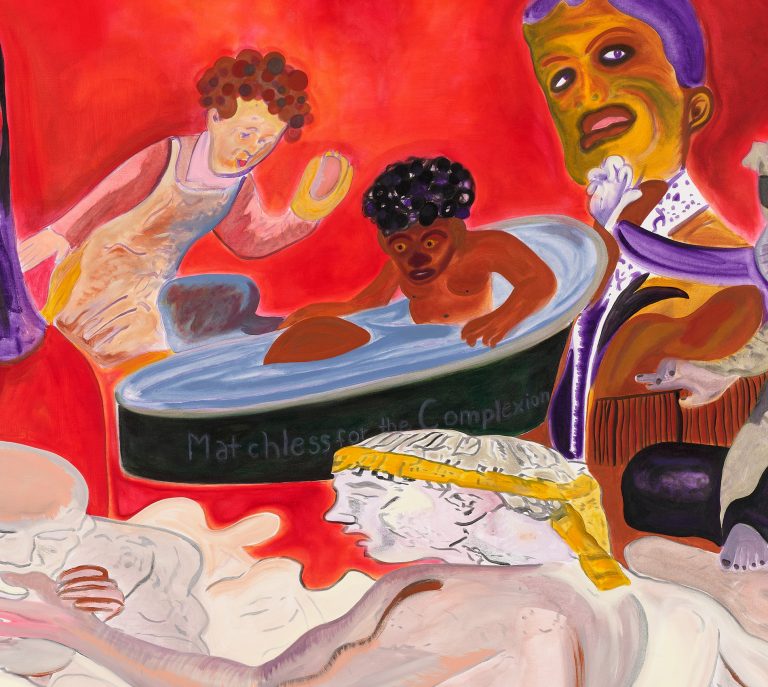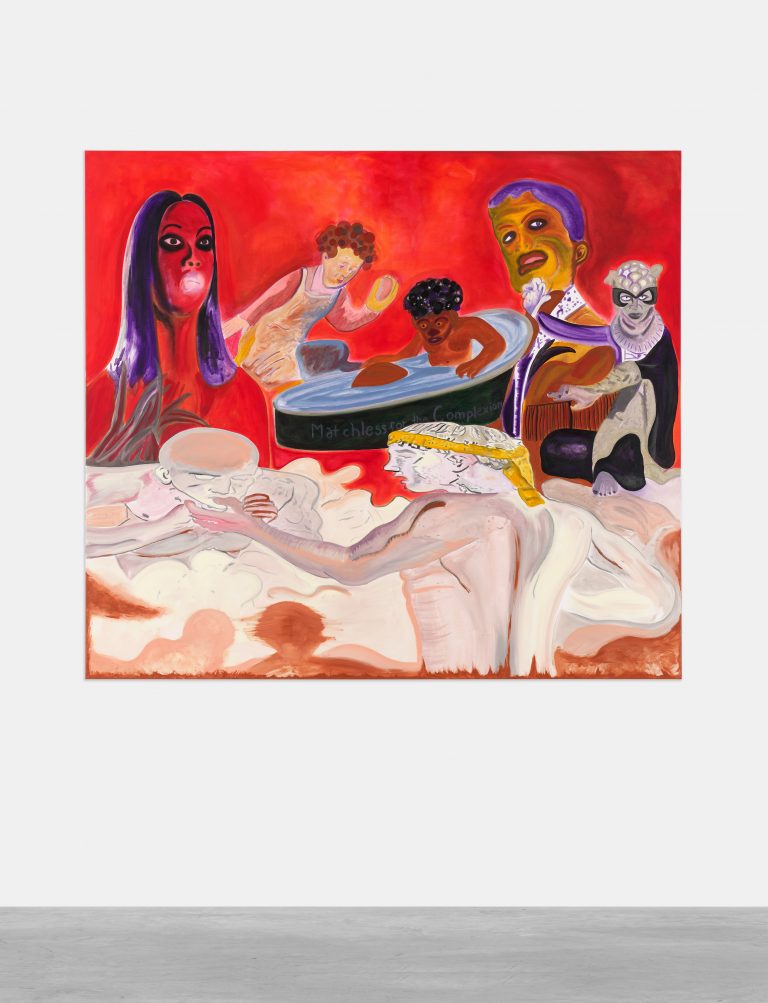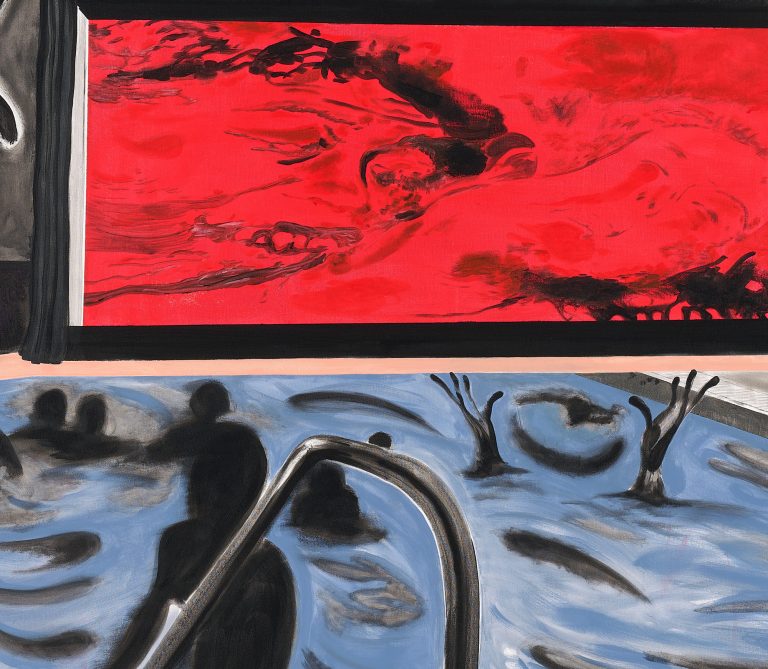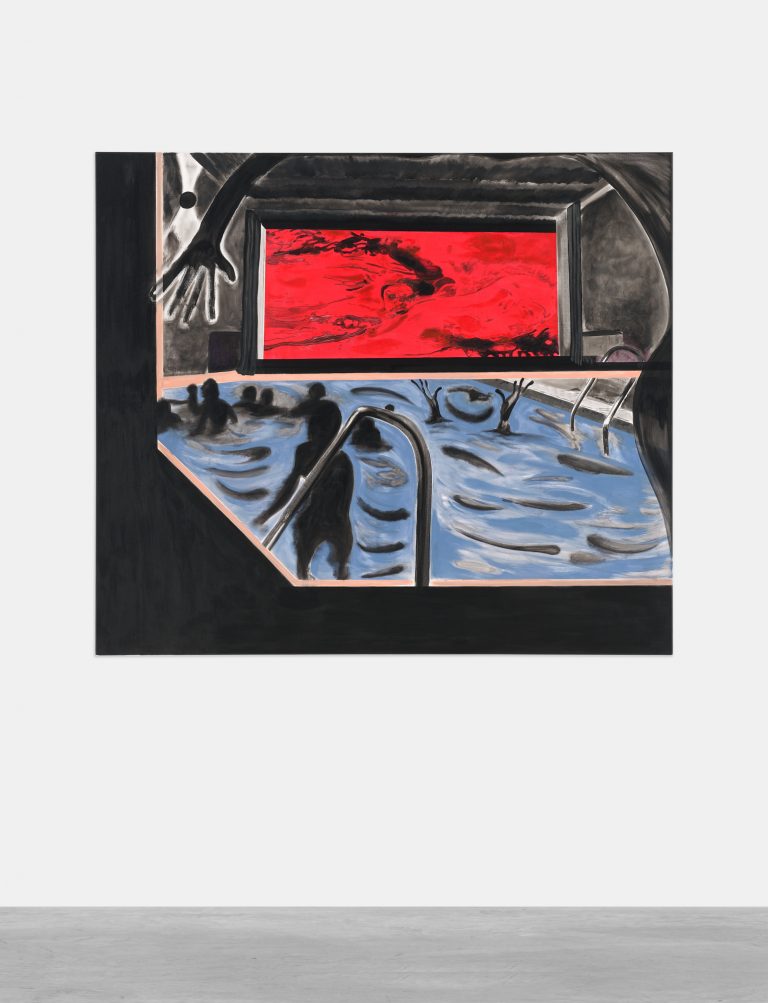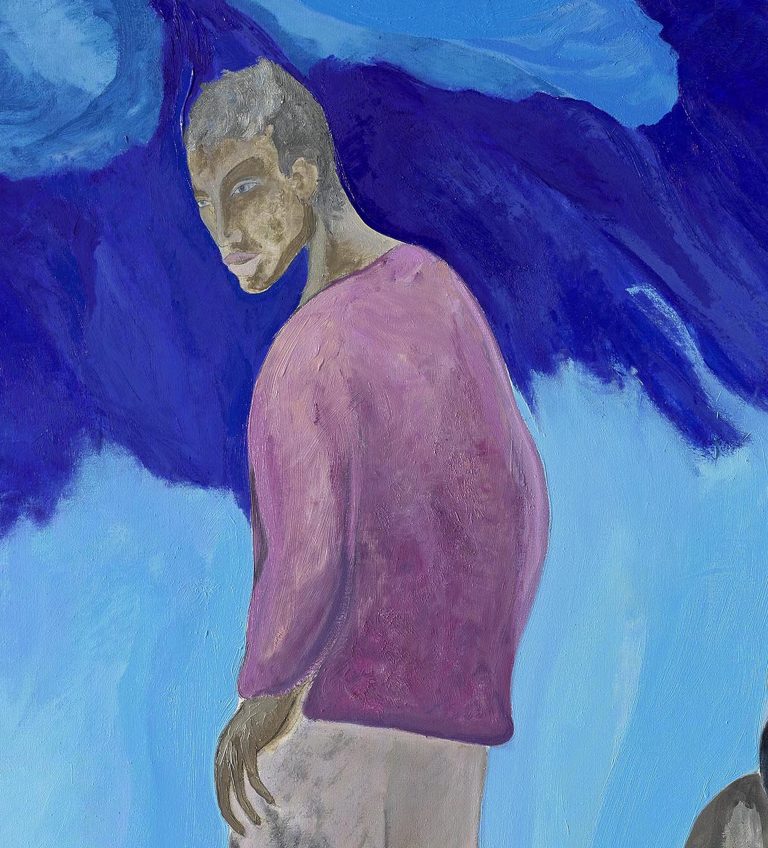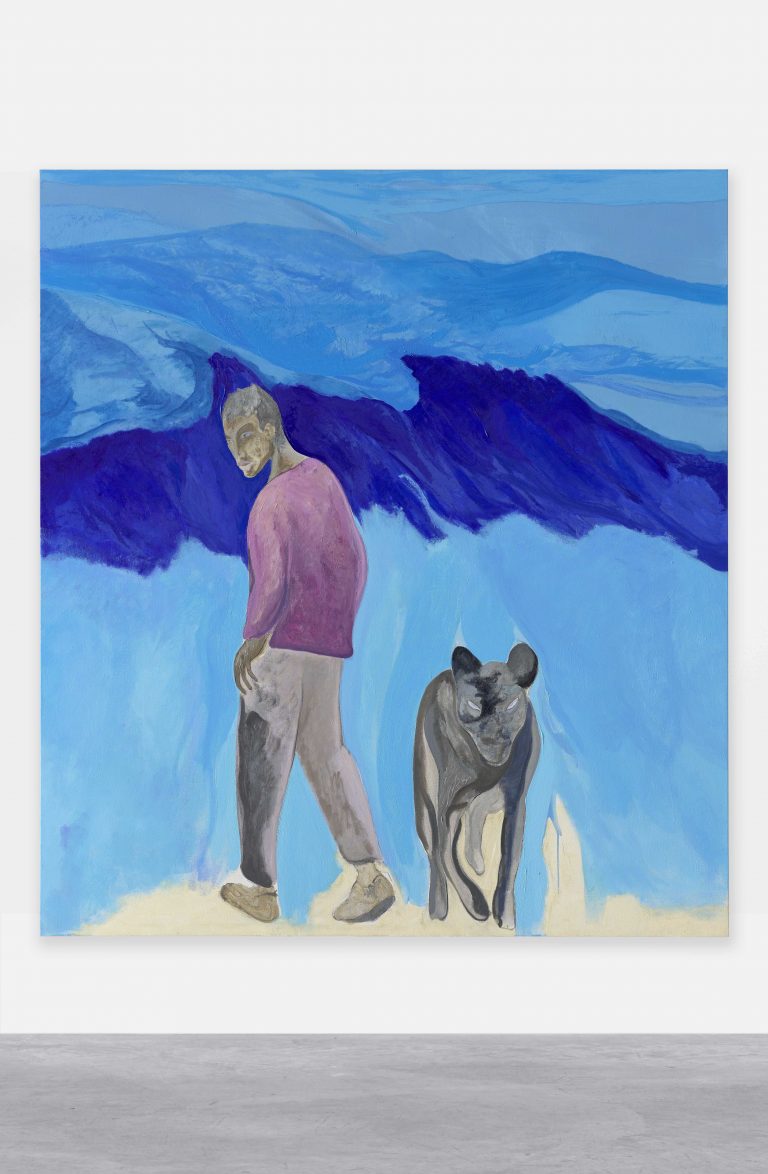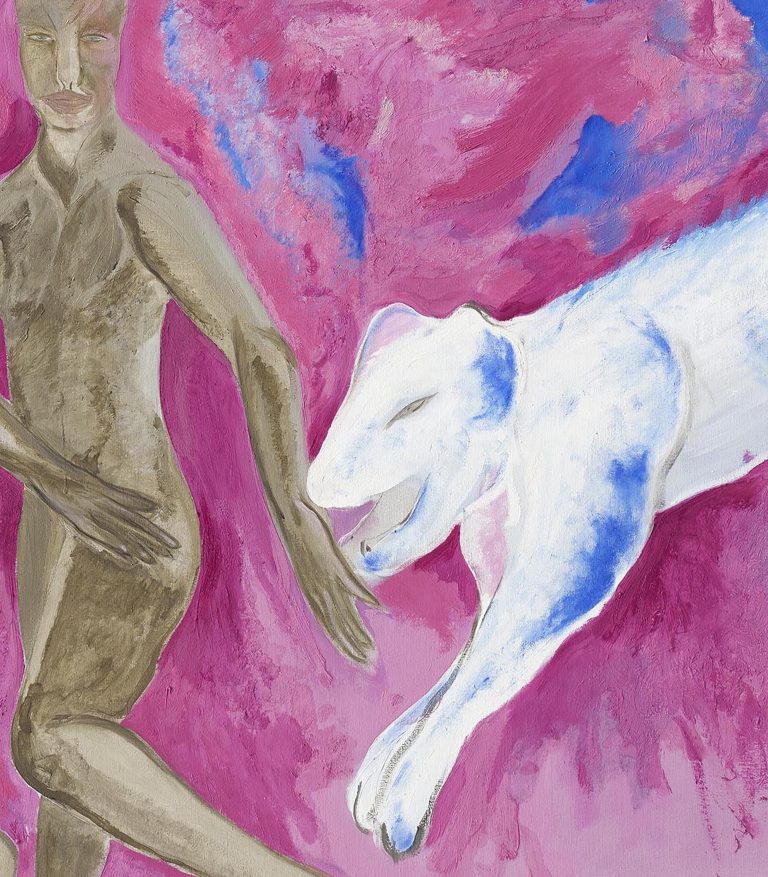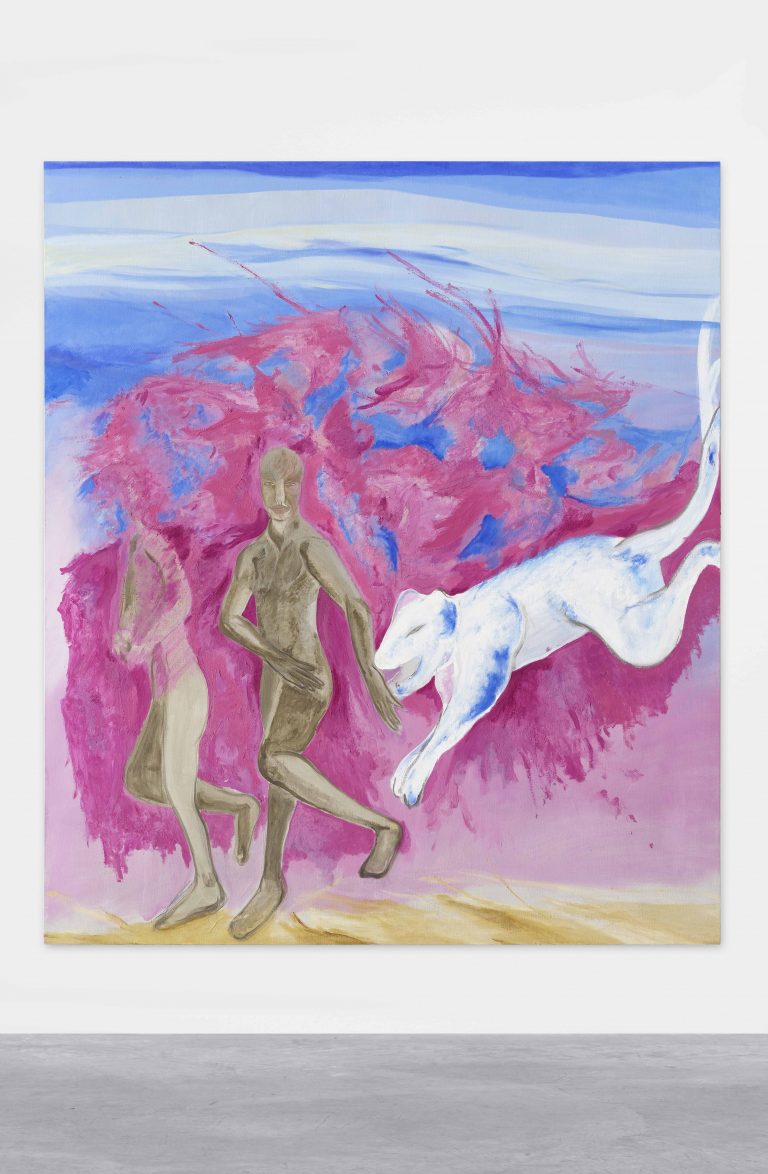Nicholas Grafia
Free Verse Spirit
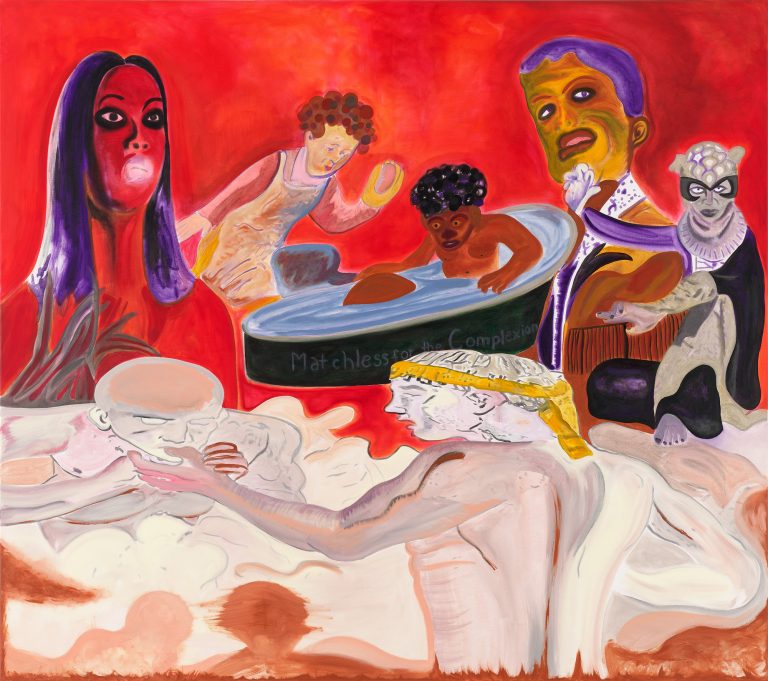
NICHOLAS GRAFIA, Soaping In The Grime, 2021. Courtesy Peres Projects, Berlin
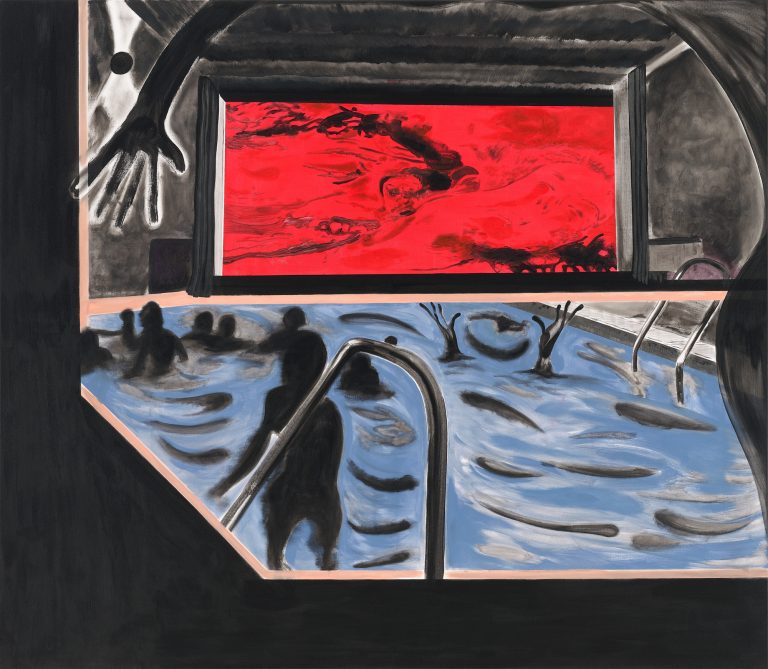
NICHOLAS GRAFIA, Dangerous Floater II, 2021. Courtesy Peres Projects, Berlin
Peres Projects is pleased to present Free Verse Spirit, Nicholas Grafia’s first solo exhibition at the gallery, on the occasion of Gallery Weekend Berlin.
In this exhibition, Grafia invokes the free verse poetic tradition – a genre known for breaking down the structures and rules of poetry, moving the medium closer to vernacular speech. The method has also been associated with difficulty – both in terms of a reader’s ability to understand free poetry, but also for its association with difficult and political content. Grafia takes up this question of how to approach difficulty in art – what to do with work that is overwhelming and hard for us to unpack.
Free Verse Spirit also relates to Grafia’s interest in oral histories – folk traditions that are either never written down, or somehow degraded in the translation between voice and text. Grafia’s work is rooted in a research-based practice, through a reading of theory as well as archival study. For this exhibition, the artist draws from traditional Philippine folk lore in a meditation based on heritage and racialized identity. The paintings that make up the exhibition explore what is lost forever with these oral traditions, and what can be reclaimed through an affective, visual translation.
This imagery intersects with the artist’s interest in film culture and celebrity images which circulate as contemporary folk lore. Humor, pastiche and ambivalent juxtapositions are a critical motif in these works, paying homage to the visual history of comic books – both mainstream and its amateur counterpart; fan fiction. Grafia explores the overlap of these different visual languages and how they contribute to the cultural maintenance of identities, considering narratives excluded from official histories and staging ruptures in the archive.
Drawing on ancestral and epigenetic knowledge, and informed by a research practice in queer, feminist and post-colonial writings, the artist weaves together worlds that are personal, political and surreal. Grafia’s work straddles the genre of both auto and exofiction, extracted from personal experience the artist renders larger visible national and global narratives.
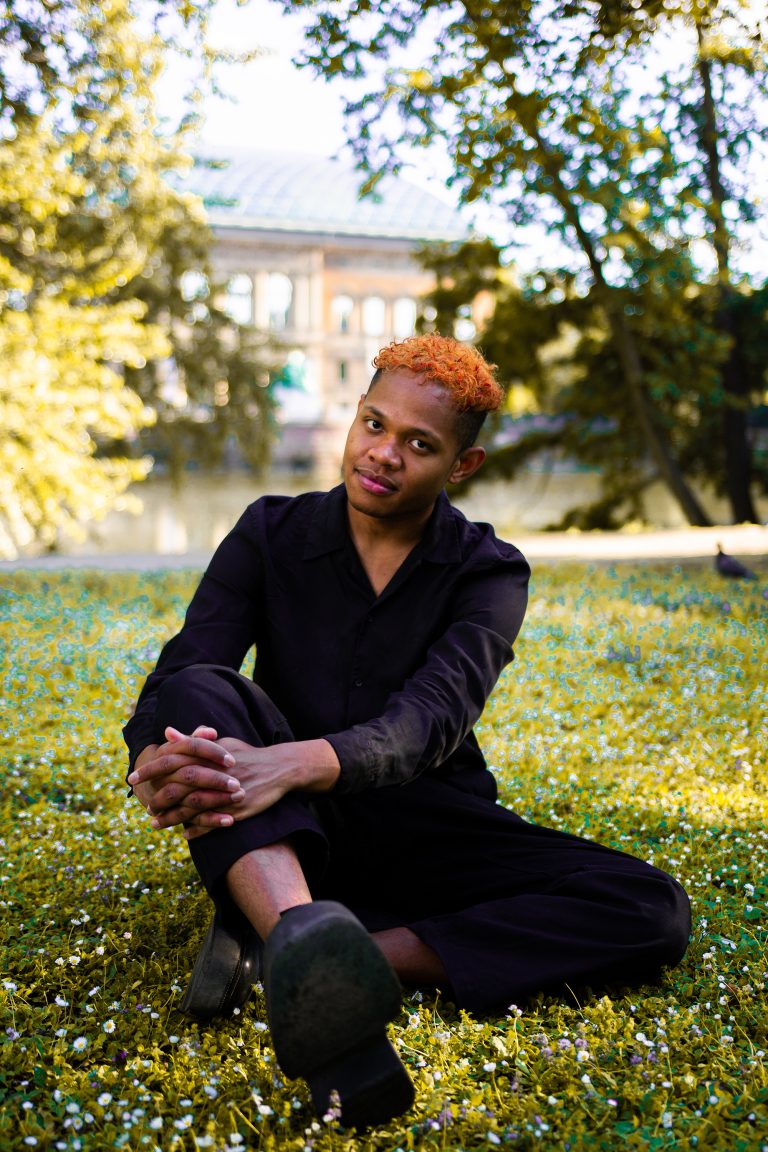
Courtesy Peres Projects, Berlin, Photographed by: Pauline Lischke
Nicholas Grafia (b. 1990, Angeles City, Philippines) stages interventions into the historical archive, by weaving research, popular culture, as well as personal and art histories into their bright visual works, along with addressing themes of racial and sexual vulnerability by examining who is in- and excluded from official narratives. Grafia completed his MFA at the Kunstakademie Düsseldorf in 2019. Recent solo exhibitions include the Kunsthal Aarhus, Aarhus; Anderson’s Contemporary, Copenhagen; and group exhibitions at the Museum Ludwig, Cologne; Museum of Modern Art, Warsaw; and the Kunstverein für die Rheinlande und Westfalen Düsseldorf in Dusseldorf. Grafia has upcoming solo exhibitions at the fiebach minninger in Cologne and the Düsseldorf Sponsorship Award, and will participate in upcoming group exhibitions at the KW Institute for Contemporary Art, Berlin; Haus der Kulturen der Welt, Berlin; The Contemporary Art Museum of Luxembourg, Luxembourg; Mountains, Berlin; GOLD+BETON, Cologne; and Copenhagen Contemporary in Copenhagen. Grafia currently has solo exhibitions at Peres Projects in Berlin and KOENIG2 by_robbygreif in Vienna.
Paolo Salvador
Resonancias oníricas (Dream resonances)
Peres Projects is pleased to present Resonancias oníricas, Paolo Salvador’s second solo exhibition at the gallery, on the occasion of Gallery Weekend Berlin. Educated in both Lima and London, Salvador’s recent works continue the artist’s exploration and affirmation of his Peruvian identity. Salvador’s paintings are quiet. The swirl of color and texture in his landscapes wash over the viewer – an experience that happens slowly and in stages. These paintings resist the instantaneous scroll time that our eyes have adjusted to, and are not easily digestible. His works are haunting, and elicit emotional resonances that develop and change over time.
From a distance the mind has space to contemplate questions of home and belonging, and it is from Salvador’s new residence in Berlin that his works turn towards reflection on his own Peruvian identity. Salvador looks to mythology as a device to examine diasporic experiences, and his work not only evokes mythological figures but also situates them within a contemporary context and discourse. As personal reflection gives way to complex realities, this synthesis opens up spaces for new mythologies to materialize.
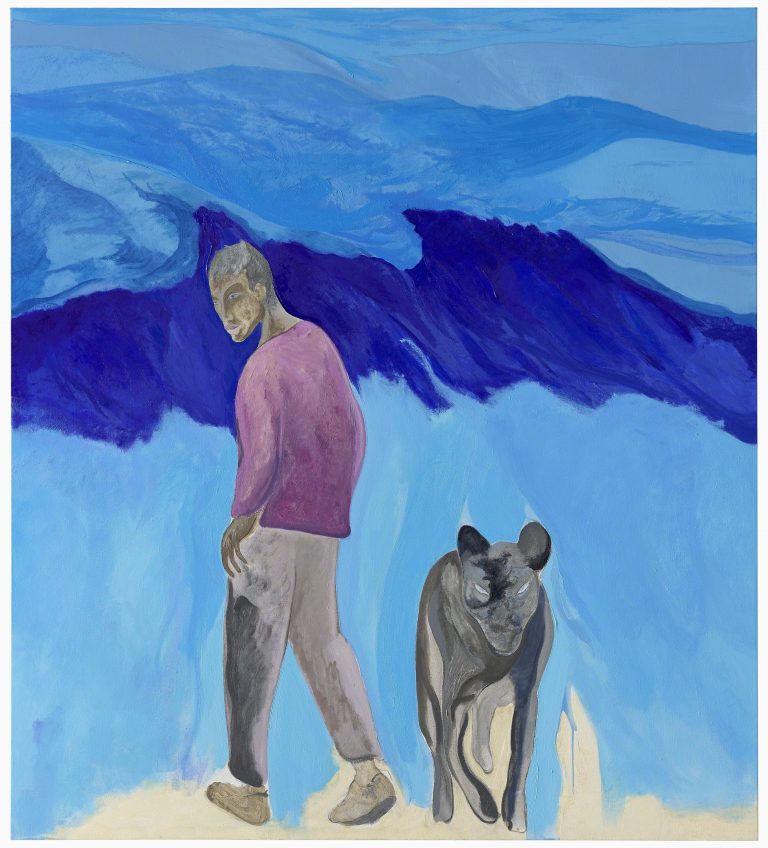
Paolo Salvador, Pablo y el Jaguar, 2021. Courtesy Peres Projects, Berlin, Photographed by: Matthias Kolb
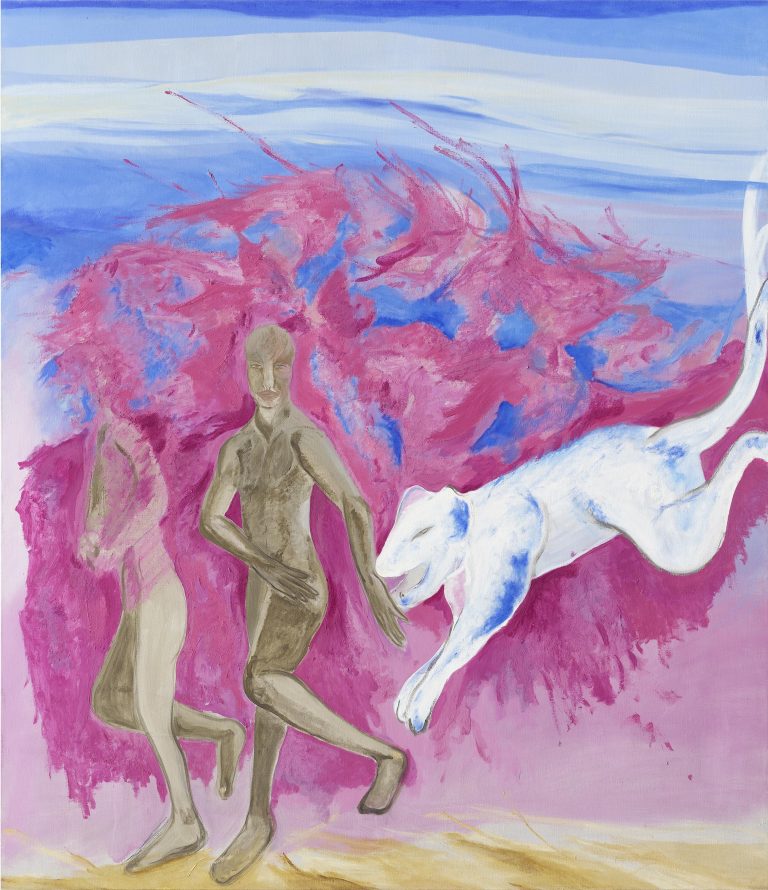
PAOLO SALVADOR, Los corredores, 2021. Courtesy Peres Projects, Berlin
These oneiric paintings are inhabited by animal and human figures that navigate ecosystems inspired by Peruvian landscapes. Mythic figures recur throughout Salvador’s work, as he taps into ancient local traditions and iconography. Each figure simultaneously embodying symbolic and narrative meaning. Plants significant for their medicinal or hallucinogenic properties, or animals absorbed by national and regional identities, circulate amongst his contemporary imagery. Invoking these figures and icons and situating them within the contemporary context and discourse, Salvador asserts the resilience and the usefulness of these shared narratives.
The figures that are at the center of his works are mostly untethered by architecture, emerging from nebulous environments that evade specific location, which upon closer inspection reveal as much texture and painterly detail as in the figures. Human and animal figures move together through these landscapes, emerging through the soft, textured pinks and blues of the skyline – extensions of a common spirit. The intersection of the human and the non- human, figure and landscape, urban and wild, are themes that run throughout Salvador’s practice. The artist’s gothic interest in the transgression of boundaries opens into the sublime, amplified by the emotional states imparted by his lush color palette.
Salvador’s works are experiments in excess and aesthetic ambiguity, conjuring dreamscapes where humans and animals in lockstep navigate hazy locations where details elide the specific. The artist’s raw brushstrokes, where colors overlap and struggle for dominance, weave together these hybrid worlds composed of deconstructed timelines. Salvador’s paintings have an art historical syntax, combining and reflecting on visual lineages while integrating his own personal exploration of Peruvian heritage. The symbolism in each work gestures to larger histories, yet elicit individual interpretations and affective responses. His works traverse the collective psyche, reflecting on contemporary experiences of isolation and alienation as well as moments of convergence.
Paolo Salvador’s (b. 1990 in Lima, PE) methodology involves a careful engagement with his materials, as he builds layers and details of paint across the canvas. The different planes of the painting trespass and bleed into the others, both revealing and covering, simultaneously creating and flattening out the depth in his landscapes. These vivid environments are externalizations of personal and allegorical narratives, as these figurative paintings reflect on various aspects of the human condition. In 2019 Salvador recieved his MFA in Painting at The Slade School of Fine Art – UCL, London, UK. Salvador has had solo exhibitions at Peres Projects, Berlin, DE and Patricia Low Contemporary, Gstaad, CH, in 2021.

